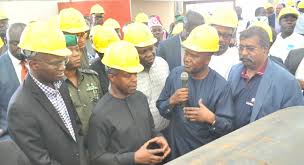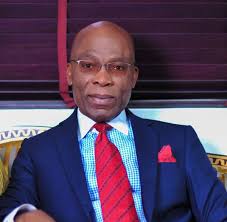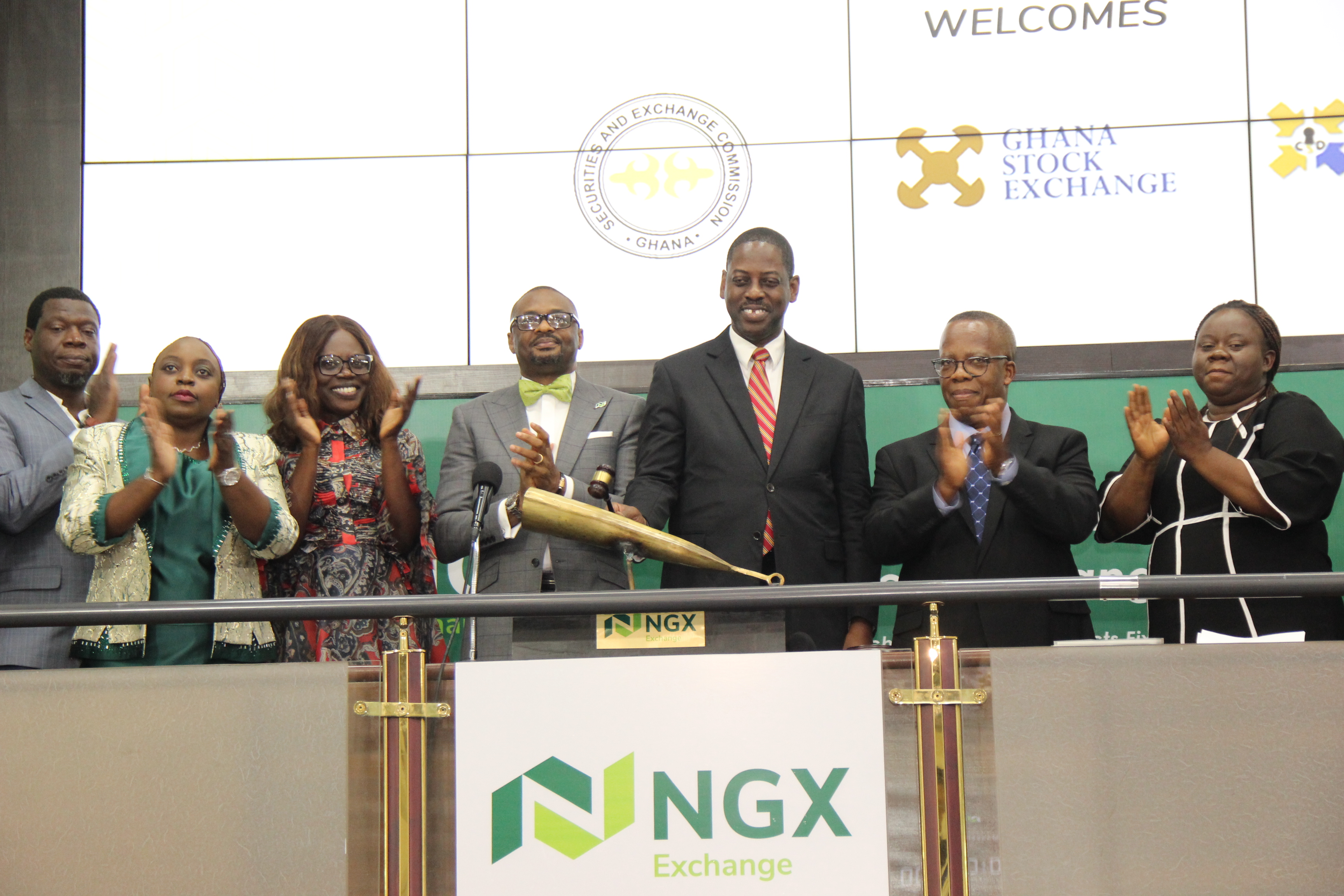Dangote Refinery most visited private project by FG officials in 2019—BHIU
A month-by-month analysis of walking visits by top Federal Government officials throughout 2019 has shown that rather than a government project, Dangote Refinery, a private sector driven multibillion dollar scheme was most visited by officials of the Federal Government with the exception of President Muhammadu Buhari. Vice President Yemi Osibanjo visited the refinery within the period under review.
This was revealed in the Oil and Gas Segment of the 2019 Nigeria Business Year Report’ presented in Lagos on Saturday by Business Hilights Intelligence Unit (BHIU), the lead Business Research Arm of Media Hilights Group, publishers of Business Hilights Online News Channel and Markets Business Hilights Newspapers.
Following Dangote Refinery at a distant second in terms of official federal visits is the ongoing Lagos-Ibadan standard gauge railway, but statistics showed that the Minister of Transportation topped the overall number of touring government executives within the year on the project handled by Chinese firm.
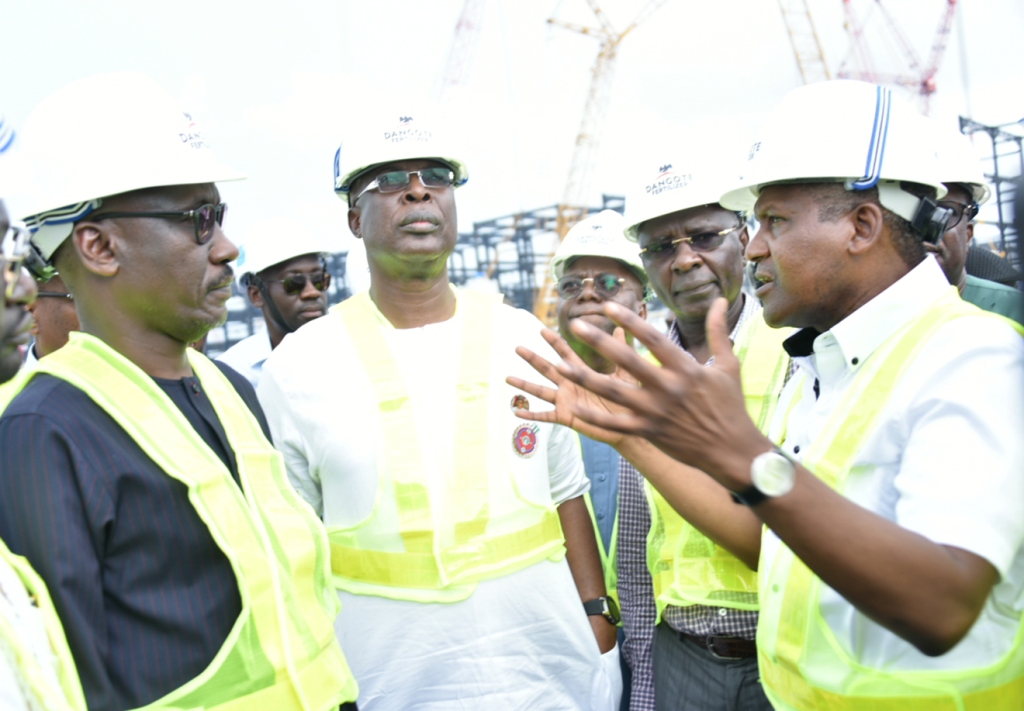
The BHIU Report noted that the Minister of State for Petroleum, Chief Timipye Sylva, who is yet to visit any of the moribund federal refineries, was also at the Lekki private Refinery in 2019.
Many analysts queried why none of the moribund four national refineries was ever toured by any Minister or top government official within the just ended 2019 upon the claims that efforts are made to fix the assets before the end of 2023.
Other Ministers including that of Finance and National Planning; the Governor of the Central Bank of Nigeria (CBN), Mr. Godwin Emefiele was also spotted at the Lekki facility last year.
Before the end of the year, Nigerian Governors Forum (NGF) lead by its chairman and Ekiti State Governor, Dr Kayode Fayemi visited the Dangote Refinery thereby making the facility set the first national record of being the first ever, both private and public project visited as a group by the members of the NGF.
According to the BHIU Report, “Within the durations of each of the visits by top government officials in which the President of the Dangote Group, Alhaji Aliko Dangote was present, he never in his address asked for any form of support or assistance for the scheme, rather continued to highlight the importance of the Federal Government providing business enabling environments in terms of ease of doing business, tax reforms, power and infrastructures for businesses to thrive.”
Business Hilights recalls that the 650,000bpd refinery being developed by Dangote Industries is an integrated refinery and petrochemical complex in the Lekki Free Zone in Lagos.
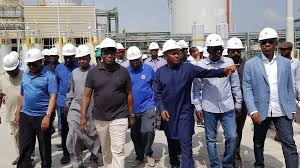
The refinery is expected to be the world’s biggest single-train facility, upon completion in 2021 or so.
A report by Hydrocarbons Technology website said the scheme, estimated to cost $12bn, the refinery will produce Euro-V quality gasoline and diesel, as well as jet fuel and polypropylene. The project is expected to generate 9,500 direct and 25,000 indirect jobs.
Nigeria is estimated to hold approximately 37 billion barrels of proven oil reserves, which is the second biggest in Africa. The country, however, imports majority of its refined products due to lack of domestic refining capacity.
The new refinery doubles Nigeria’s refining capacity and help in meeting the increasing demand for fuels, while providing cost savings.
Site and location details of Dangote oil refinery
The refinery site covers an area of 2,635ha on the Lekki Free Zone near the Lekki Lagoon. The location will enable transhipment of refined petroleum products to the international markets.
Processing units at Nigeria’s new refinery
The processing facilities at the refinery include a crude distillation unit (CDU) and associated facilities, a mild hydrocracking (MHC) unit, residual fluid catalytic cracking (RFCC), naphtha hydrotreater and RFCC gasoline hydrodesulfurisation (HDS) unit, as well as alkylation units.
“Nigeria is estimated to hold approximately 37 billion barrels of proven oil reserves, which is the second biggest in Africa.”
Sulphur recovery and hydrogen generation facilities and a polypropylene unit are also part of the refinery. The hydrogen generation complex consists of two steam methane reformer (SMR) units. It generates 200,000Nm³/h of hydrogen and steam, which will be used to produce sulphur-free fuels.
Additional processing units include a set of units supplied by DuPont to produce clean fuels. These units include the STRATCO® alkylation unit and the MECS® sulphuric acid regeneration (SAR) unit. The MECS® DynaWave® sulphur recovery unit and BELCO® EDV® fluid catalytic cracking unit are also included.
Infrastructure and site facilities
The refinery fea
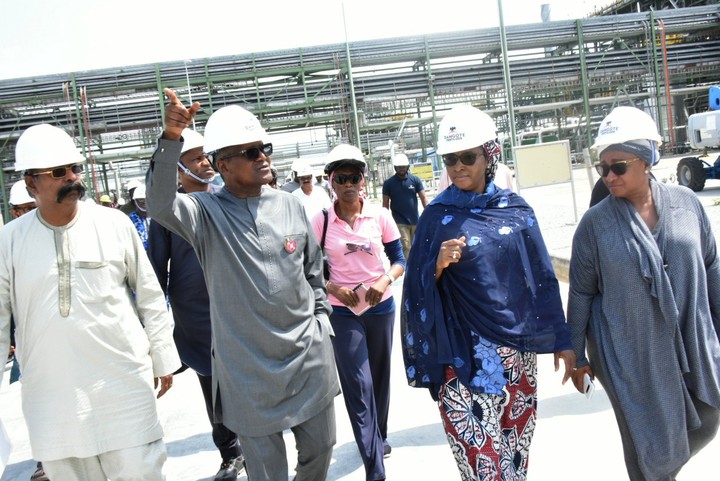
tures infrastructure facilities such as a pipeline system, access roads, tank storage facilities, and crude and product-handling facilities. A marine terminal, including a breakwater, jetty and harbour, is also part of the refinery.
In addition, an administrative building, guardhouses, fire station and pump stations are a part of the facility.
The refinery complex also includes a fertiliser plant, which utilises the by-products from the refinery as raw materials.
Dangote oil refinery products
The Dangote refinery has an annual refining capacity of 10.4 million tonnes (Mt) of gasoline, in addition to 4.6Mt of diesel and 4Mt of jet fuel.
It also produces 0.69Mt of polypropylene, 0.24Mt of propane, 32,000t of sulphur and 0.5Mt of carbon black feed.
Funding for the new oil refinery
The Dangote oil refinery has been constructed through $3bn equity and $6bn loan capital. A consortium of local and international banks led by Standard Chartered Bank provided a $3.3bn loan facility.
The United States Trade and Development Agency offered a N251.3bn ($0.997m) training grant to develop human resources for operating the refinery.

Contractors involved
Engineers India was awarded the engineering, construction and procurement contract for the refinery.
UOP was contracted to supply catalyst regeneration and dryer regeneration control systems, column trays, heat exchanger tubes, a modular CCR unit, and catalyst coolers among other equipment.
C&I Leasing Group was responsible for providing transportation and installation services for mooring systems and subsea pipelines of the refinery.
Hang Xiao Steel Structure Company was awarded a $112m contract to supply steel structure for the refinery.
Jan De Nul Group was responsible for carrying out land reclamation works. MAN Diesel & Turbo is supplying two compressor trains, while Air Liquide Engineering & Construction is supplying the SMR units.
Other suppliers involved in the project were Fabtech (18 columns), Schneider Electric (process automation systems), SOFEC (Catenary Anchor Leg Mooring bouys) and WABAG (raw water treatment plant).

